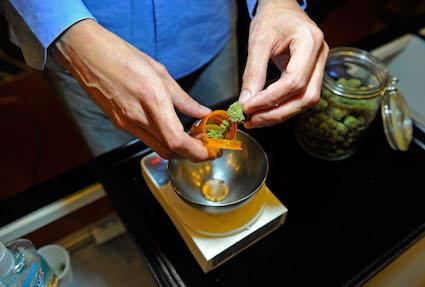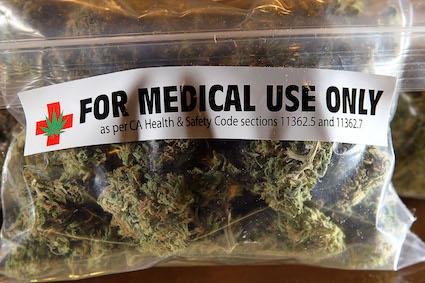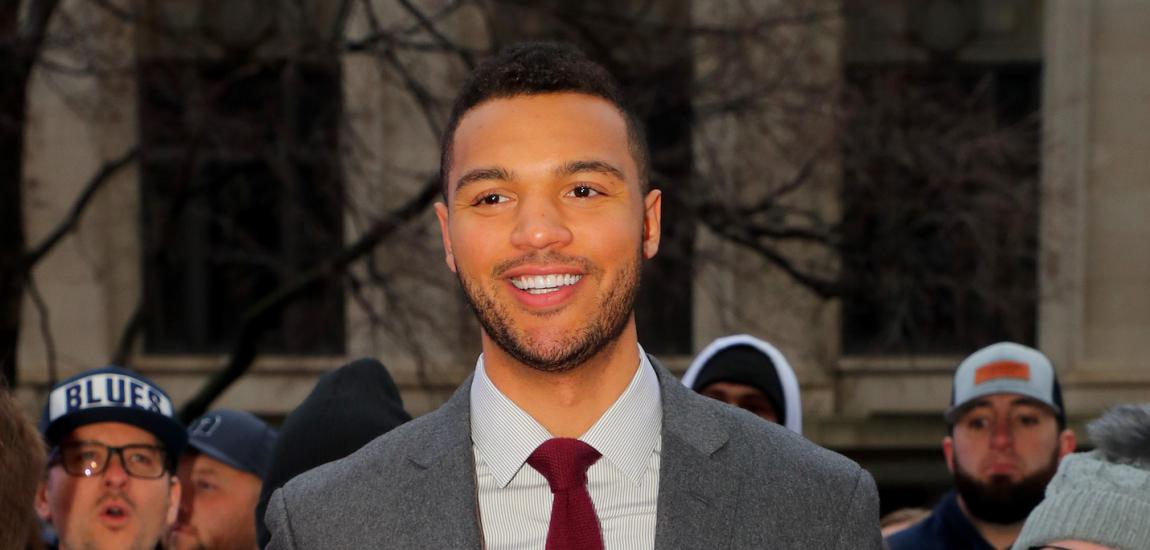Every week, NFL players experience a wide array of injuries that cause them to suffer severe pain. Players equate the impact of play on the field to getting into multiple car accidents in one afternoon. Currently, the most commonly prescribed painkillers are opiate based. Clearly opiates are addictive and have led to a nationwide epidemic. Over the years, I've had players become addicted to opiate-based painkillers. Looking to avoid that tragedy makes it necessary to look for non-addictive alternatives.
There has been longstanding debate on whether marijuana should be allowed as a form of pain relief in the NFL. Historically, the league has suspended players for their recreational and medicinal use of the drug. With it now legal in 28 states for medical use and legal in seven states for recreational use, the push for permitting use of marijuana as a pain reliever is getting stronger.
Per league and players' union sources, the most commonly used marijuana related substance among players is Cannabidiol ("CBD"). CBD is a compound that is extracted from the marijuana plant. CBD has so little of a psychoactive effect that federal law does not qualify it as marijuana. CBD oil has been used to treat many diseases from acne to diabetes, post-traumatic stress disorder, schizophrenia and insomnia.
However, CBD is currently banned under the NFL's substance abuse policy and any player that tests positive for CBD on two or more occasions is subject to suspension. The same is the case in Major League Baseball and the National Basketball Association. All three leagues suspend players for multiple positive CBD tests. MLB has the strictest policy of the three major sports with a lifetime ban after the fourth positive test.

The argument against marijuana use by professional athletes has primarily centered around preventing the lifestyle that tends to follow smoking "weed" ("dope," "grass," or whatever you care to call it), risk of addiction; and, of course, the concern that marijuana is a gateway drug to other more addictive drugs. In recent years, thoughts that marijuana is less addictive than alcohol, which is obviously legal in all 50 states and prevalent in professional sports, and that CBD is an alternate form of treating chronic pain have countered the historical stance on marijuana.
Current NFL player Seantrel Henderson has been one of the proponents for CBD use among professional athletes. After being diagnosed with Crohn's disease, which involves inflammation of the bowel, Henderson says that he began using CBD to treat the pain that he suffered from the disease. In a series of interviews, he noted that doctors recommended CBD because painkillers would have been harmful to his intestines and recovery.
Following doctors' orders, he started using CBD to treat the disease and was suspended twice by the NFL. Henderson's suspension for using a doctor proscribed medicine to treat a disease has been a core component of the argument of CBD advocates for modification of the NFL's drug policy.
One of the biggest advocates for the use of CBD is former NFL quarterback Jake Plummer, a client during his playing days. Throughout his career, he suffered a number of injuries and has stated that he has turned to CBD oil for pain relief. Plummer credits CBD in helping him with the repercussions of NFL-related injuries and avoiding the addictive nature of painkillers. Golden State Warriors head coach, Steve Kerr, recently articulated similar thoughts on the use of cannabis for chronic pain relief and encouraged the NBA to look at removing cannabis from its banned substance list.

CBD awareness seems to be hitting the mainstream. While spending three days on Media Row in Houston before the recent Super Bowl, I noticed cannabis brand ambassadors interviewing with radio hosts and media personalities. This type of visibility will only increase with more states legalizing medicinal and recreational use of marijuana.
The current NFL Collective Bargaining Agreement ("CBA"), which is the agreement between the players' union and management council that represents the owners, expires in 2020. Player compensation, benefits, health and safety are always key issues of a CBA negotiation. I expect that in the following three years leading up to the next CBA that arguments will amplify for removing CBD from the NFL's banned substance list. If it can be proven that CBD does not have addictive tendencies and does not have any gateway drug risk, we could even see the banned substance policy change before the next CBA.
It's safe to say that big changes are likely coming to the NFL in the form of cannabis being permitted as a non-opiate form of pain relief.

-- Leigh Steinberg has represented many of the most successful athletes and coaches in football, basketball, baseball, hockey, boxing and golf, including the first overall pick in the NFL draft an unprecedented eight times, among more than 60 first-round selections. His clients have included Hall of Fame quarterbacks Steve Young, Troy Aikman and Warren Moon, and he served as the inspiration for the movie "Jerry Maguire." Follow him on Twitter @leighsteinberg.





